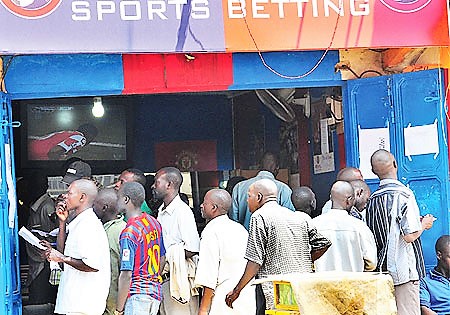Grade Four Pupils of Parklands Baptist School play during break time on November 19.
Learners will have to study under trees, in tents and in dining halls when schools reopen in January if the government does not address the infrastructure challenge within the next one month since nearly all available spaces are occupied, head teachers have revealed.
The school heads who spoke to the Nation yesterday said inadequate infrastructure is now their biggest headache.
Learners in Grade Four, Standard Eight and Form Four, who are currently in schools, were distributed to the other classrooms when they reported back to school on October 12, occupying nearly half of the available space. This was in an effort to observe the 1.5-metre social distancing Covid- 19 health protocols.
Before the pandemic hit the country, most schools had their classrooms holding an average of 40 learners, while some had up to 60. With the new guidelines, classrooms are holding a maximum of 25 learners.
In some primary schools, learners in Grade Four are occupying classrooms meant for grades One to Four, while those in Standard Eight are in Standard Five to Eight spaces.
Enough spaces
In secondary schools, Form Four students are occupying classrooms meant for forms Two and Three.
Learners in boarding schools will not have enough spaces in dormitories as schools did not build additional ones to enable social distancing.
The Kenya Secondary Schools Heads Association Chairman Kahi Indimuli said institutions may have to be creative by providing tents or using dining halls, where learners can sit for lessons.
“For classrooms, schools may be creative enough and provide tents where students can take their lessons, but it will be difficult to shift learners to spend their nights in tents, they will have to use the available dormitories.”
He said it will be impossible to build new dormitories between now and January.
“Social distancing remains the greatest challenge for all schools and we will have to ensure that learners observe more of the hand washing and wearing of quality face masks while in school,” he said.
Due to the 100 per cent Form One transition in the past two years, most secondary schools have been struggling with congestion of learners. This is despite the institutions establishing several new streams of classes.
The Kenya Primary School Headteachers Association Chairman Nicholas Gathemia said infrastructure, especially availability of enough classrooms, is the greatest challenge for primary schools.
“Unless the government does something between now and January, institutions will have to be creative and come up with spaces within the school compounds where pupils will take their lessons,” said Mr Gathemia.
The Teachers Service Commission (TSC) will need to recruit more instructors as the social distancing rule will increase their workload.
“It will not be possible for a teacher to teach several streams of learners as each class will have to be divided into small groups, which means we need more teachers to salvage the situation,” he said.
The TSC, in its latest report, said it requires Sh17 billion to recruit more teachers and mitigate the increased shortage ahead of reopening.
Recruit teachers
Due to the inadequate funding, the 100 per cent transition policy alone created a further shortage of 26,804 teachers, said TSC Chief Executive Nancy Macharia.
Ms Macharia said the commission planned to recruit 12,626 teachers a year to bridge the gap created by the transition policy.
But the commission has so far employed only 23,700 teachers since 2017 against a target of 50,504 over the period.
The Kenya Special Needs Head Teachers Association Chairman Peter Sitienei revealed that the infrastructure in special needs schools is pathetic and not enough to ensure social distancing. He also revealed that the schools were largely left out in the distribution of the Sh1.9 million economic stimulus desk project and that a majority of them do not have enough desks to support social distancing when schools reopen in January.
“From our records, only four special needs schools were supplied with the desks,” said Mr Sitienei.
The nightmare
The Kenya Private Schools Association Chief Executive Officer Peter Ndoro said most private schools do not have funds to expand or build more classrooms.
“Without funding, private schools do not have the capacity to observe social distancing as the available classrooms will not be enough to accommodate learners,” he said.
The Ministry of Education has since acknowledged that social distancing will be a nightmare for many schools.
Last week, President Uhuru Kenyatta said the government plans to build 12,500 classrooms in both day and boarding primary and secondary schools.
The President gave the Ministry of Education and that of Transport and Infrastructure up to December 1 to issue new guidelines for the construction of new classrooms and infrastructure to address congestion of learners.
He said the classrooms will be built though the National Government Constituency Development Funds within 24 years.
Education Cabinet Secretary George Magoha said this year, the ministry has disbursed Sh1.63 billion to 708 secondary schools for infrastructure development.
“The ministry has also disbursed Sh345 million to 30 national schools this year to enhance access and ease pressure on the demand for Form One places in already existing national schools and satellite extra-county schools,” he said.
The money is part of the Sh8.2 billion Secondary Education Quality Improvement Programme infrastructure development project sponsored by the World Bank.
The CS continues to tour several schools across the country, assessing their preparedness ahead of reopening and distribution of desks.
Credit: Daily Nation





